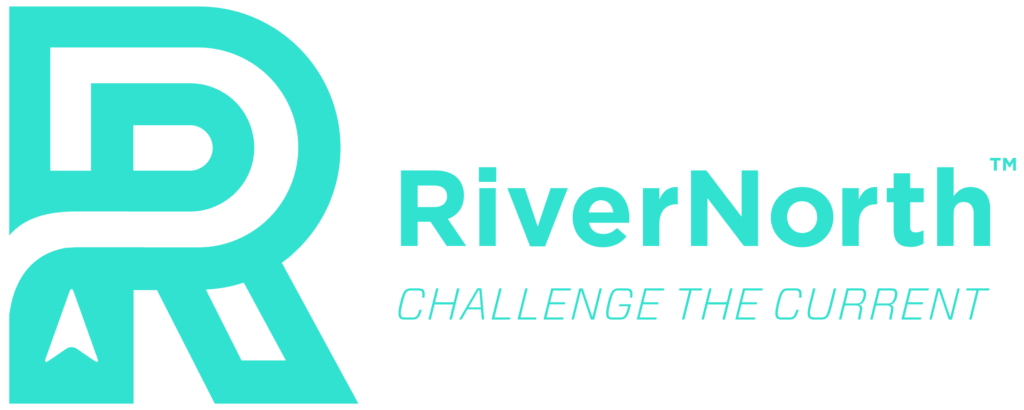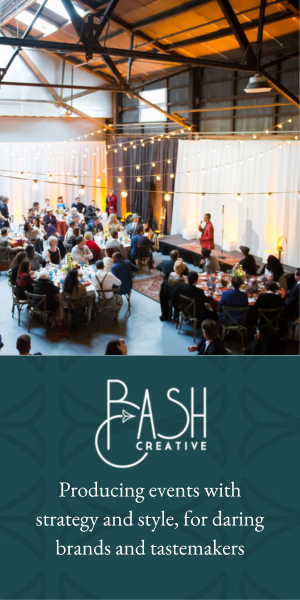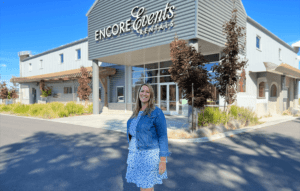Kevin Ebberts is a Co-Founder of RiverNorth Inc., an IT modernization company supporting government agencies, organizations, and programs to access government funding and aid. RiverNorth is based in Ashburn, Virginia and celebrates its fourth anniversary in 2024. In this interview for Follow the Founder, Kevin shares what led him to pursue the life of an entrepreneur and what he loves most about being a Founder.
Kevin never expected to become an entrepreneur. In fact, he was on a very different path: science.

“My background in school was in mechanical engineering, concentrated on HVAC (Heating, Ventilation and Air Conditioning) design. I did internships with the Department of State around sustainable energy and building practices. I thought I was going to be designing HVAC systems and alternative energy for a living.”
Research suggests that less than half of graduates end up working in the field they studied [1]. More often than not, when you set on the initial career path you laid out for yourself, you find a disparity between expectation and reality. When you get into a career you enjoyed studying for, you may discover that the expectations of the work are different and the everyday tasks are not what you envisioned. This, combined with the dynamic job market and change in talent demand, could take you to places you never pictured yourself in.
“I graduated in 2009, in the heart of the recession. Engineering jobs were pretty tough to come by. So I ended up getting work with a large consulting firm doing front-end web testing, IT project management, and application design. I followed that path for about five years, supporting federal government contracts, all over DC, defense contracts, some with the FBI and Homeland Security.
“I did not enjoy a lot of the work I was doing. In many cases, when working for a large company, the focus was on billing hours. A lot of contracts were what we call ‘butt in the seat’ work. It wasn’t as much consulting as I thought it was going to be. Also, there was a lot of ‘keep us relevant’ type of company work. It was not a mission I necessarily agreed with.”
For many Founders, passion and values are a guiding light along their journey to entrepreneurship, even if they don’t necessarily realize that in the moment. It is almost impossible to, and certainly miserable, to stay long in a career, if the culture doesn’t resonate with you. In fact, research shows that 51% of US workers and 45% of UK workers quit jobs if there is a clash of beliefs [2]. You can see this most recently exhibited by the “Great Resignation”, a trend prompted by COVID-19 that ended mid-2023, during which people left their jobs in search for work more aligned to their aspirations as well as better work conditions and improved work-life balance.
“I quit Federal Services and went into the private sector. I got sort of a crash course in playing around with forty-year-old mainframe systems for supporting the Navy Federal Credit Union. I did a lot of system design, application design, and I got this passion for working with all the systems no one else wanted to work with.
“It wasn’t HVAC, but I realized that Systems Design was really similar. Instead of tracking temperatures and pressures across a system, I was tracking information and data as it passes through different channels. So I got a real passion for that.”
When we follow our values and passion, we more often than not find ourselves on the right path. Even if we don’t get into the field we studied for, there are always experiences to tap into, and skills to borrow from the plethora we have collected along the way.
“It was a smaller company that I was working with at the time which enabled me to get into leadership and see a bit more of how businesses operated. It was enough to see that this was an area where I would do something differently.”
A major reason people become Founders is because they are problem solvers, they are passionate about changing the status quo. They have a vision for a better work environment, they want to drive change, they want to create a better reality they see possible.
Once they get the idea and have awakened the Founder in them, all it takes is a final push, a dose of courage to put their thoughts into action.
“I had a real passion for supporting employee development. I wanted to go into mentoring and skills development and a bunch of areas, but I couldn’t do everything, because I was working on this particular project and there was only so much time.
“Having seen both sides, the federal contracting side and the client work made me think how everything was connected and I started thinking about how it could be improved. I thought federal contracting didn’t have to be this huge wall. Also, you can be transparent about the project and not hide behind billable hours.
“That was the impetus for me, for wanting to found something, to be the company I thought could exist for employees and clients but didn’t see on the market. So this is how I got here.”
Kevin saw an open door, a niche that wasn’t being addressed or could be done more efficiently. There are so many employees who see these opportunities, maybe even share them with management, and get dismissed a lot of the time because companies don’t want to ruffle feathers or unravel process and procedure. But Kevin saw an opportunity to think differently, and he took it. The benefits of this decision manifested immediately.
“A lot of people don’t want a boss. But for Founders it is not because they don’t want to be told what to do. Someone is going to tell you what to do even then: clients, the market, etc. But what changes is how you go about it and who you are accountable to. When you start, you don’t feel like an owner. You feel like an employee with equity. It’s a lot of hard work. You have this ramp up in how much you put into. We refer to it as the garage phase. All the companies start in this phase, working crazy late hours for very little money. But I will work a lot harder for me, for my co-founders, and for my employees than I might for someone in some office who doesn’t know my name.
“It’s allowed me to grow and put myself into positions that I didn’t feel comfortable in. But did it kill me? No. I keep going. I love it.”
Despite the hard work, there is high reward in Foundership. Which is why many people never go back from being a Founder to being an employee. The sensation of giving a bit of your vision and identity to the world is hugely gratifying. Regardless of the specific niche, the part of Kevin’s story that particularly resonates with Follow The Founder’s mission is the urge to create a new, better, improved environment. The urge to become more than an employee. To give more. To create. To mentor. To become a leader.
To learn more about aspiring and seasoned Founders, join our welcoming and growing community at Follow the Founder. You can also find us on Instagram or LinkedIn.
References:
[1] https://www.mirror.co.uk/money/jobs/graduate-career-degree-university-study-30511829[2] https://sustainablebrands.com/read/organizational-change/more-and-more-talent-ready-to-leave-companies-over-misalignment-of-values#:~:text=Nearly%20half%20of%20employees%20say,both%20the%20UK%20and%20US).
Want to Keep Reading?
Archetypes Who Are You: Caroline Myss
Explores universal archetypes and how understanding them can provide insight into personality, purpose, and personal transformation.































